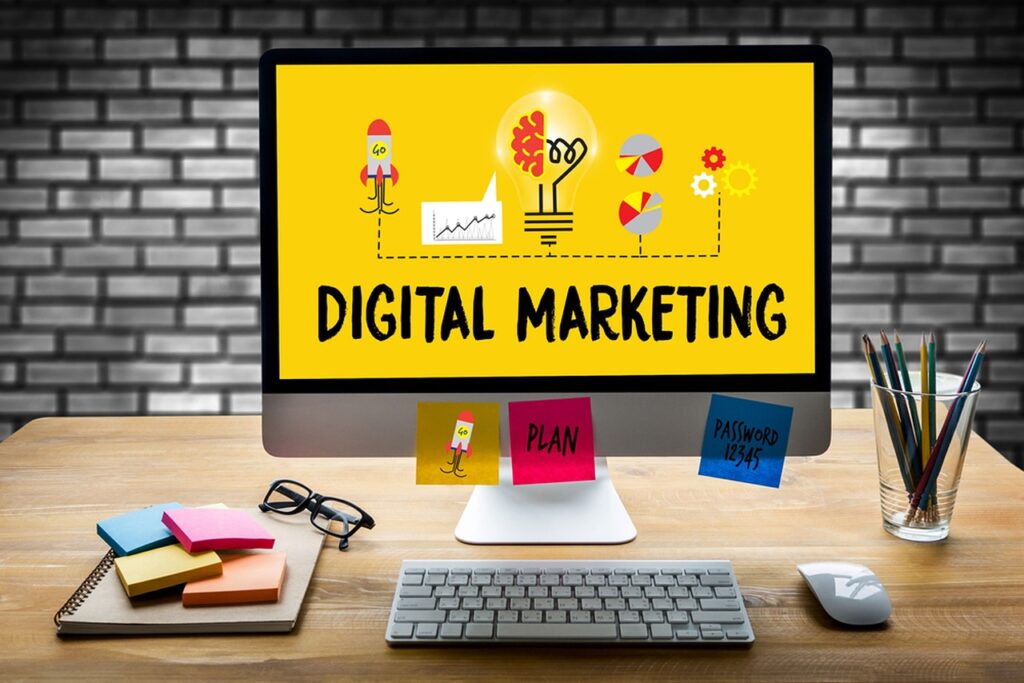The future of digital marketing agencies is promising and will continue to evolve as technology and consumer behavior change. Here are some key trends and developments that are likely to shape the future of digital marketing agencies:
- Data-Driven Marketing: Data analytics and artificial intelligence will play an increasingly significant role in digital marketing. Agencies will need to harness the power of data to make informed decisions, personalize marketing efforts, and measure ROI effectively.
- Automation and AI: Automation tools and AI-driven marketing solutions will become more sophisticated. Agencies will use AI to optimize ad campaigns, create personalized content, and streamline marketing processes.
- Content Marketing Evolution: Content will remain king, but the format and distribution methods will continue to change. Video, live streaming, interactive content, and virtual reality will become more prevalent in digital marketing strategies.
- Voice Search and AI Assistants: As voice search and AI-powered assistants like Siri and Alexa gain popularity, agencies will need to optimize content and strategies to accommodate voice-based queries.
- E-commerce Integration: The growth of e-commerce will lead to increased demand for agencies that can effectively promote products and services online. This includes optimizing product listings, managing online marketplaces, and leveraging digital advertising for e-commerce businesses.
- Social Media Marketing: Social media will remain a vital channel, but platforms may evolve. Agencies will need to adapt to new platforms and changes in algorithms to continue delivering effective social media marketing.
- Influencer Marketing: Influencer marketing will continue to be a valuable strategy for brands. Agencies will need to identify and collaborate with relevant influencers to reach target audiences authentically.
- Privacy and Data Regulations: Agencies will need to stay updated on privacy regulations and ensure that their marketing practices comply with laws like GDPR and CCPA. This will impact how they collect, store, and use consumer data.
- Personalization and Customer Experience: Customer-centric marketing and personalization will be crucial. Agencies will need to focus on creating seamless and personalized customer experiences across all digital touchpoints.
- Sustainability and Social Responsibility: As consumers become more environmentally conscious and socially aware, agencies may need to incorporate sustainability and corporate social responsibility into their clients’ marketing strategies.
- Remote Work and Global Collaboration: The COVID-19 pandemic accelerated the adoption of remote work. Digital marketing agencies are likely to continue embracing remote work arrangements and collaborating with talent worldwide.
- Continuous Learning and Adaptation: The digital marketing landscape is ever-changing. Agencies will need to invest in continuous learning and adapt quickly to emerging trends and technologies.
In conclusion, the future of digital marketing agencies is bright but also dynamic and competitive. Agencies that stay ahead of the curve by embracing new technologies, data-driven strategies, and evolving consumer preferences will continue to thrive in the ever-evolving digital marketing landscape.







